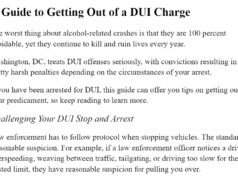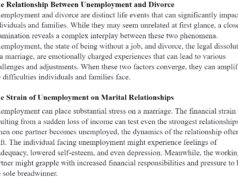SPONSORED CONTENT
Is It Safe to Drive With a Cough or Fever?
Driving is a daily activity for most Americans. Unfortunately, it is fully integrated into our lives, which has made most people oversimplify it. It is common to see drivers multitasking while driving and not giving driving a second thought when sick.
Research has proven that illness symptoms can significantly affect a driver’s performance. Studies by an insurance company, Young Marmalade, have shown that a driver’s skill is reduced by up to 50 percent when they fall sick. Sick drivers were found to behave similarly to those driving on four double whiskeys.
If you are experiencing any symptoms of illness, including a cold or fever, driving is risky. Here is why.
Sickness Related Distractions
Sickness symptoms such as coughing and sneezing could take a driver’s focus away from the road. When we hear of distracted driving, we automatically think of phone calls and texts. However, actions like blowing your nose while driving are also forms of distracted driving.
Additionally, while coughing or sneezing, you might temporarily close your eyes. For a driver, this is particularly dangerous and could cause an accident.
Cold Medicine Side Effects
If you are feeling sick, you are most likely taking some medicine to help ease the pain and discomfort. Unbeknownst to most people, a combination of cold medication could have the same effects on a driver as alcohol. Therefore, it is no surprise that most medicines warn against operating machinery after intake.
Cough medicine could make you drowsy with effects like that of an intoxicated driver. You might swerve between lanes, unnecessarily brake, and register slower reaction times.
Slower Reaction Time
Drivers need to be attentive at all times as it enables them to spot potential hazards and react accordingly in time. Unfortunately, physical symptoms like headaches, muscle aches, fevers, and fatigue could negatively affect a driver’s reaction time.
A migraine could be accompanied by blurred vision, extreme pain, and confusion. These symptoms and fatigue could impact your ability to drive safely.
When to Avoid Driving
Using alternative means of transport while sick is the best way to keep yourself and others safe. Here are common illnesses that affect your diving abilities:
- Flu-like symptoms like headaches, muscle aches, fatigue, runny nose, coughing, and sneezing could lead to slower reaction time and distracted driving.
- Eye infection—Eye infections can lead to the release of a sticky discharge, which can impair vision. They can also cause redness, itchiness, and blurred vision.
- Stomach infection: This is often accompanied by nausea, vomiting, high fevers, headaches, dehydration, and diarrhea, which make driving next to impossible.
Final words
Driving while sick is undoubtedly hazardous. Falling ill is not good; you may feel weak and experience headaches and fevers. All these factors combined make driving challenging. Therefore, if you are unwell, have someone else drive or consider alternative means of transport.
“Remember, you might face negligence charges if you cause an accident while sick. Driving while knowing you are sick ignores the duty of care and can be considered negligence,” says Attorney Rich Godshall of Ostroff Godshall Injury and Accident Lawyers.
If you or someone you know is injured in a car accident with a driver who was ill while driving, you can hire an attorney to help you file a claim against the driver.












